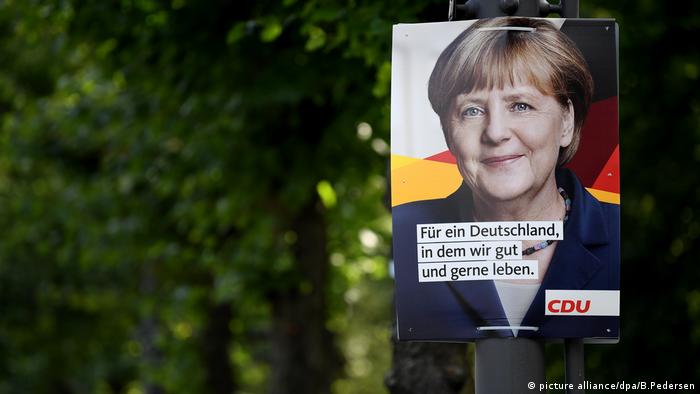Following the federal election, the right-wing AfD will likely be among the opposition in the Bundestag. This will have consequences for democratic life in Germany. Learn about the opposition's rights here.

After the federal election, all parties who garnered more than 5 percent of the popular vote nationwide are allocated seats in the Bundestag, Germany's lower house of parliament. Parties who are not part of the government coalition make up the parliamentary opposition.
What is the role of the opposition?
In a parliamentary democracy like Germany, the tasks of the opposition have traditionally included scrutinizing the work of the government, initiating debate about policies and presenting alternatives to bills brought forward by government politicians.
All parliamentarians are free to state their beliefs. This also goes for members of the opposition, whose opinions can be diametrically opposed to the views of parliamentarians in government parties.
Is there such a thing as an opposition leader in Germany?
No. In Germany, being the opposition party that has won the most votes comes with a certain prestige, but there's no specific position attached to it.
It's important to know that the parties making up the opposition aren't one big block. The two parties in the current opposition, the Left Party and the Greens, are both on the left side of the political spectrum. But if the far-right populistAlternative for Germany (AfD) makes it into the Bundestag, parties with opposing convictions will make up the opposition.
What special rights does the biggest opposition party have?
The number of seats a party holds in the Bundestag, allocated according to the percentage of votes they won, does matter when it comes to the time granted to speakers. If, as polls predict, the AfD does indeed become the third-largest party in the Bundestag after the conservative CDU and the Social Democrats (SPD), their parliamentarians will be able to speak longer in debates than parliamentarians of other opposition parties.
The Bundestag budget committee is traditionally headed by someone from the largest opposition party. If the AfD wins this position, however, the other parties have already said they'll deviate from this tradition.

According to the most recent polls, the AfD stands to become Germany's leading opposition party
What tools does the opposition have?
One tool to oversee the work of the government is the enquiry. All parliamentary groups can file an enquiry containing questions directed at the government. In general, enquiries are almost exclusively filed by the opposition. The number of seats a party has in the Bundestag doesn't matter when it comes to enquiries - the largest opposition party has no special privilege here.
An enquiry is a popular way to scrutinize the government's work asking for clarifications of government plans or results of government policies. In the last legislative period from 2009 to 2013, parliamentarians filed 54 "large" enquiries, requiring plenary debate and 3,629 "small" enquires, necessitating a written response.
Another tool is the fact-finding committee. Parliamentarians can vote to establish such a committee on a certain political issue at any given time. The initiative from this usually comes from the opposition because the committee is supposed to uncover irregularities or even wrongdoings involving the government. High-profile examples in recent years have included committees on the NSU neo-Nazi group and the NSA surveillance affair.
Originally, a quarter of all parliamentarians needed to vote in favor of initiating a fact-finding committee for it to go forward. But because the opposition in the current Bundestag only has 20 percent of the seats, this number was adjusted downward. This is not permanent, however, and might be changed again depending on the size of the opposition after the upcoming election.

German election campaign placards
Christian Democratic Union (CDU)
After three terms in office, Chancellor Angela Merkel is no stranger to election posters. With a budget of 20 million euros, the conservative Christian Democratic Union (CDU) is pinning up some 22,000 placards across Germany. The use of a deconstructed German flag brings out the party's patriotism, while the main focus of slogans is on issues such as security, family and work.
What roles do opposition parties play outside of the Bundestag?
All parties represented in the Bundestag, including the opposition, are also represented in committees or councils throughout civil society in Germany. If the AfD enters the Bundestag, this will be a particularly touchy issue.
Parliamentarians sit on the boards of Germany's public broadcasters and the Federal Agency for Civic Education, which provides students and other interested parties with information about what it means to be a German citizen – as well as Germany's Nazi past and current right-wing crimes.
For committees where parliamentarians only send one person, he or she usually comes from one of the big parties leading the government. Sometimes their smaller coalition partner will receive one of these seats. But for boards or committees that several parliamentarians serve on, the seats are usually distributed among all parties, including the opposition, which will likely include the AfD.

אין תגובות:
הוסף רשומת תגובה